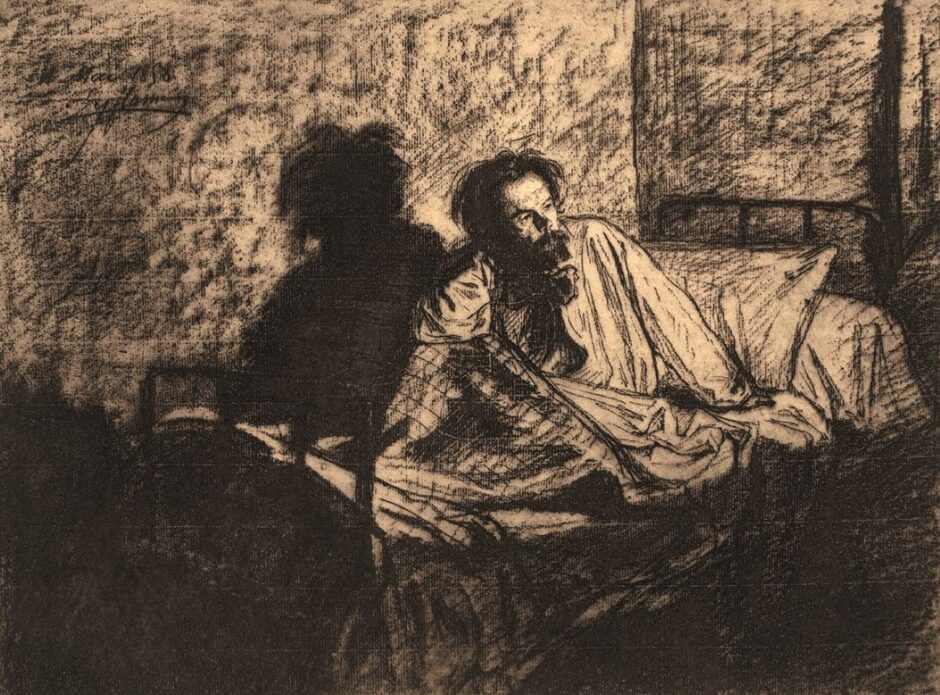The Bible teaches that we were made by God from the dust of the ground: ‘The Lord God formed the man of dust from the ground and breathed into his nostrils the breath of life, and the man became a living creature’ (Genesis 2:7).
That blind chance could conspire to bring about such a phenomenally complex organism as a human being remains an unlikely theory. Within limits, living creatures can adapt to their surroundings, but such adaptations do not bring about fundamental developments in species.
Creatures of Dust
The first man, having been created, was given by God a simple law. ‘You may surely eat of every tree of the garden, but of the tree of the knowledge of good and evil you shall not eat, for in the day that you eat of it you shall surely die’ (Genesis 2:16–17). The serpent deceived Adam and Eve by lying, ‘You will not surely die’ (3:4). They ate and the sentence of God was given: ‘Cursed is the ground because of you; in pain you shall eat of it all the days of your life; thorns and thistles it shall bring forth for you; and you shall eat the plants of the field. By the sweat of your face you shall eat bread, till you return to the ground, for out of it you were taken; for you are dust, and to dust you shall return’ (Genesis 3:17–19).
The Bible gives no evidence for a conscious existence in any form after death. Its teaching is that we are mortal, dying creatures, and in death we cease to be.
The Psalmist says, ‘Put not your trust in princes, in a son of man, in whom there is no salvation. When his breath departs, he returns to the earth; on that very day his plans perish’ (Psalm 146:3–4).
The Sleep of Death
When Jesus’ friend Lazarus died, Jesus went to visit his family. He told his disciples,
“Our friend Lazarus has fallen asleep, but I go to awaken him.” The disciples said to him, “Lord, if he has fallen asleep, he will recover.” Now Jesus had spoken of his death, but they thought that he meant taking rest in sleep. Then Jesus told them plainly, “Lazarus has died” (John 11:11–14).
Stephen, the first recorded martyr for the Gospel of Christ, was stoned to death. The Bible says he ‘fell asleep’ (Acts 7:60).
The Bible uses the illustration of sleep as a figure for death, and of awakening from sleep as a figure of resurrection from the dead.
Your dead shall live; their bodies shall rise. You who dwell in the dust, awake and sing for joy! For your dew is a dew of light, and the earth will give birth to the dead
(Isaiah 26:19).
This was David’s expectation: ‘As for me, I shall behold your face in righteousness; when I awake, I shall be satisfied with your likeness’ (Psalm 17:15).
Jesus ‘slept’ for three days in the tomb, then God raised him from the dead—as Paul said, he was ‘the firstfruits of those who have fallen asleep’ (1 Corinthians 15:20).
It can be seen that none of these passages from the Bible give any support to the idea that immortality is our inherent possession. Many people believe that they possess an immortal soul which will go to heaven when they die. This belief owes its origin to Greek philosophy, which infiltrated the Christian church in the second and third centuries ad. However, the Bible is clear that Jesus is the only man who has ascended to heaven, after his resurrection (John 3:13, Acts 1:11).
So what is the true Christian hope of eternal life? Quite simply, it is the resurrection of the dead at the return of the Lord Jesus from heaven.
We do not want you to be uninformed, brothers, about those who are asleep, that you may not grieve as others do who have no hope. For since we believe that Jesus died and rose again, even so, through Jesus, God will bring with him those who have fallen asleep. For this we declare to you by a word from the Lord, that we who are alive, who are left until the coming of the Lord, will not precede those who have fallen asleep. For the Lord himself will descend from heaven with a cry of command, with the voice of an archangel, and with the sound of the trumpet of God. And the dead in Christ will rise first. Then we who are alive, who are left, will be caught up together with them in the clouds to meet the Lord in the air, and so we will always be with the Lord
(1 Thessalonians 4:13–17).
Paul Downer



